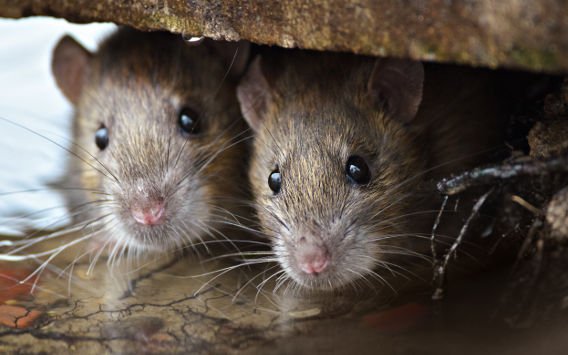Mice don’t need water to survive
Mice are so small that they can get enough moisture from their food, while rats need a reliable water supply to survive and breed.
This means that drains and leaky pipes are strongly related to rat infestations. While mice can happily settle into a home or business, rats often live in drains and journey out to find food so that they have access to both food and water.
Rats are cautious and hard to trap
One of the many attributes of rats that have helped them thrive is their neophobia, fear of new objects or changes in their environment.
This makes them difficult to trap as – unlike mice, which are naturally curious – rats will simply avoid any traps that are put down. To trap a rat, you need to be patient and wait for the neophobia to wear off, which is why we space our rat visits weeks apart.
Rats are usually pushed into homes or businesses
Mice thrive inside our buildings and are small enough to stay hidden, but rats typically only enter our homes or businesses to feed, preferring to nest in sewers or empty structures.
If you have a rat infestation, the first thing we look for is an external influence that pushed them into your premises, such as building works or blocked drains that pushed them out of their home.












